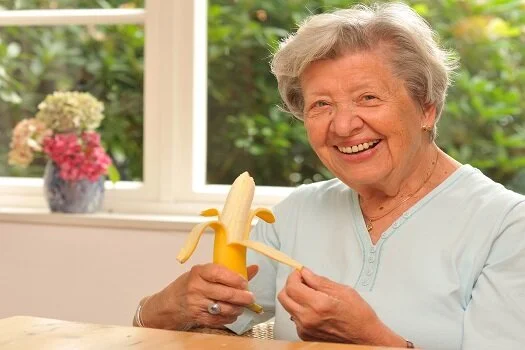
Coronavirus is dangerous because it’s so easily transmittable. What’s also called COVID-19 is especially concerning for seniors, since older immune systems are often compromised due to age-related changes and/or underlying health issues. If you have an older loved one you provide care for, here are some quick tips to help him or her prevent getting coronavirus.
1. Eat Healthy
One of the simplest things you can do to help your loved one reduce the risk of coronavirus is to provide more immune system–friendly foods. The foods that tend to be best for older immune systems include:
• Fresh fruits and seasonal veggies
• Almonds, pistachios, and dark chocolate (in moderation)
• Baked beans and low-fat yogurt
• Poultry and fish
2. Exercise at Home
In addition to being good for aging immune systems, exercise offers an assortment of other health benefits that can keep seniors healthy while they’re self-isolating in their homes. A simple way to encourage your loved one to exercise at home is to set up a space where he or she can safely stretch or do low-impact activities.
3. Wash Hands Often
The CDC recommends frequently washing your hands with soap and hot water for a minimum of 20 seconds. Handwashing should be done before and after eating, after going to the bathroom, and after sneezing or coughing.
4. Avoid Touching the Face
Unwashed hands should be kept away from the face to prevent coronavirus from getting into the eyes, mouth, or nose. If your loved one is wearing a face mask for added protection, it’s still important for him or her to avoid touching his or her face.
5. Stock Up on Supplies
Help your loved one limit in-person contact by making sure he or she has essential supplies. You can have certain things delivered, and in some areas, groceries can be preordered, paid for online, and picked up with minimal in-person contact.
To keep your loved one from having to go out, a home caregiver can run errands for him or her, including shopping for groceries and picking up prescriptions. If your aging loved one needs help managing everyday tasks or encouragement to adopt healthier lifestyle choices, turn to Home Care, a leading provider of senior care. Home Care provides professional in-home caregivers around the clock to help seniors live longer, happier, and healthier lives.
6. Communicate Remotely
For times when you aren’t providing essential care for your older family member, communicate with him or her remotely via social media or other methods he or she is comfortable using. You can also encourage your loved one to communicate remotely with other family members and friends to avoid unnecessary in-person contact.
7. Manage Chronic Conditions
According to new CDC data, coronavirus presents the greatest risk for individuals with diabetes, heart disease, and other chronic conditions. If your loved one has a chronic health issue, help him or her take the steps the doctor recommends to effectively manage it.
8. Consider Professional Home Care
Another way to protect your loved one from coronavirus is with in-home care. Though the staff at assisted living facilities do their best to help seniors stay safe, the simple fact is that in such environments, there are more people your loved one could come into contact with on a daily basis. In-home care can achieve the goal of reducing the risk of coronavirus by:
• Limiting in-person contact, since care is typically provided by the same caregiver
• Having someone who knows how to implement and encourage good hygiene habits care for your parent
• Reducing the need to have different family members provide care so the risk of virus exposure can be reduced
With information surrounding coronavirus/COVID-19 changing by the hour, it’s challenging to stay updated on the most recent best practices for keeping seniors safe at home. At Home Care, we understand how critical it is for seniors and their caregivers to protect against coronavirus as much as possible. All our team members have received detailed communication on infection control protocols, including effective cleaning and disinfecting of surfaces and hands. Our caregivers can pick up medications, groceries, and anything else a senior needs, minimizing their interaction with large groups of people. For more information on how Home Care helps protect clients, click here: https://www.harrisburghomecare.com/covid-19-home-care/.